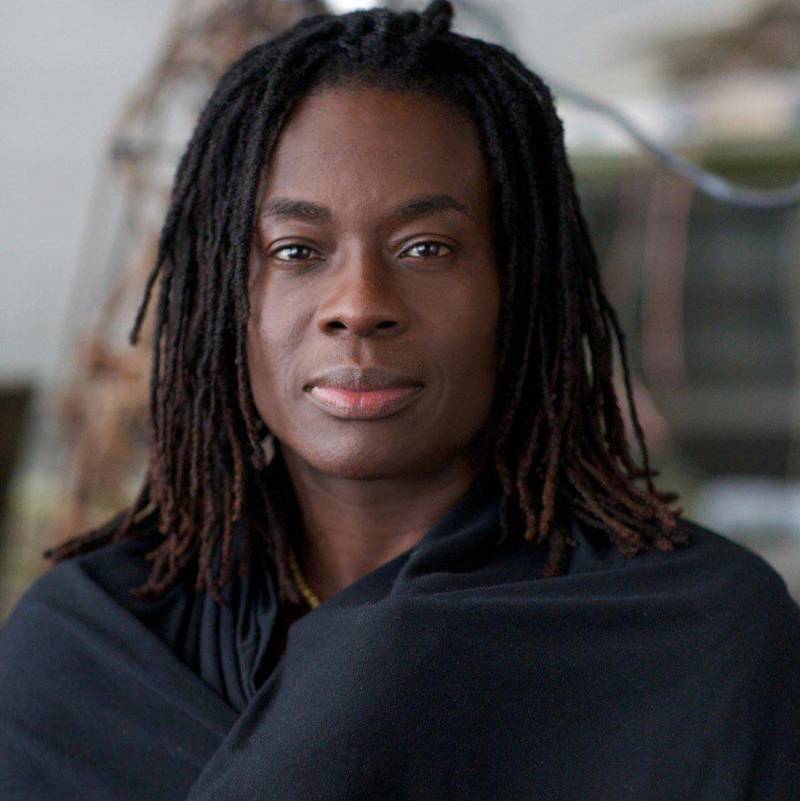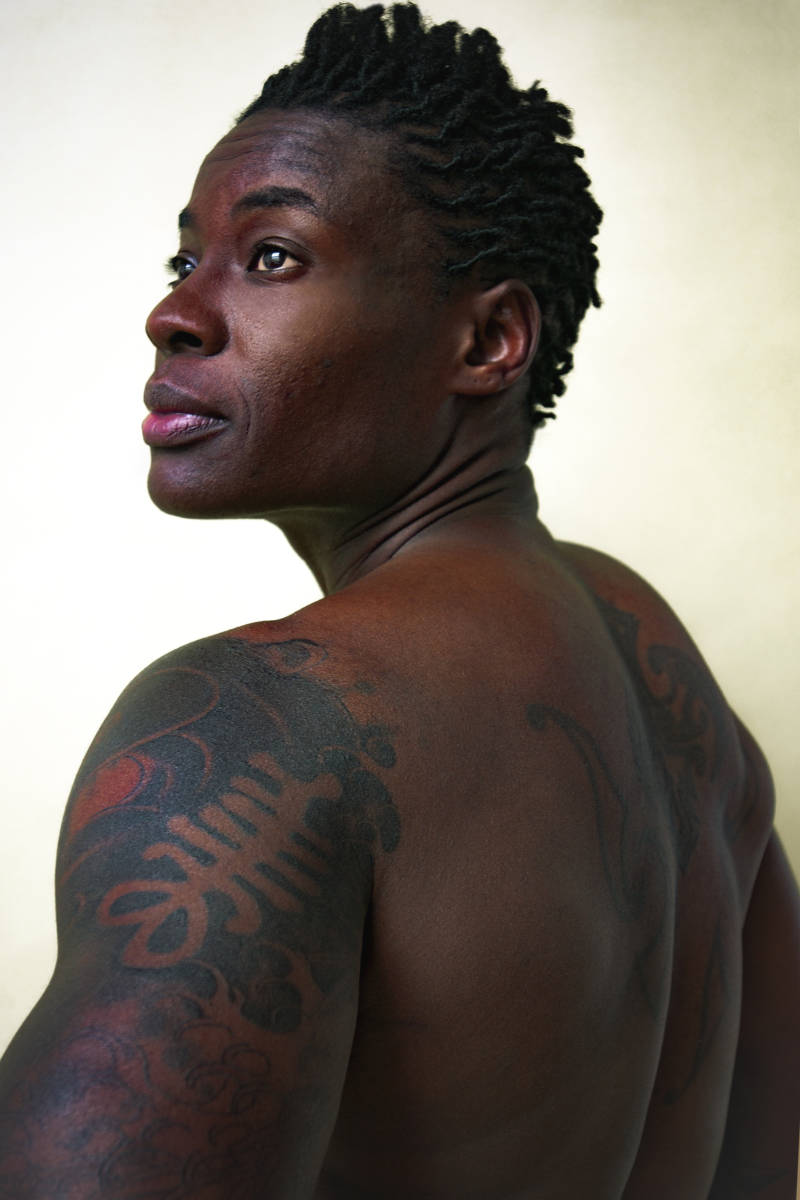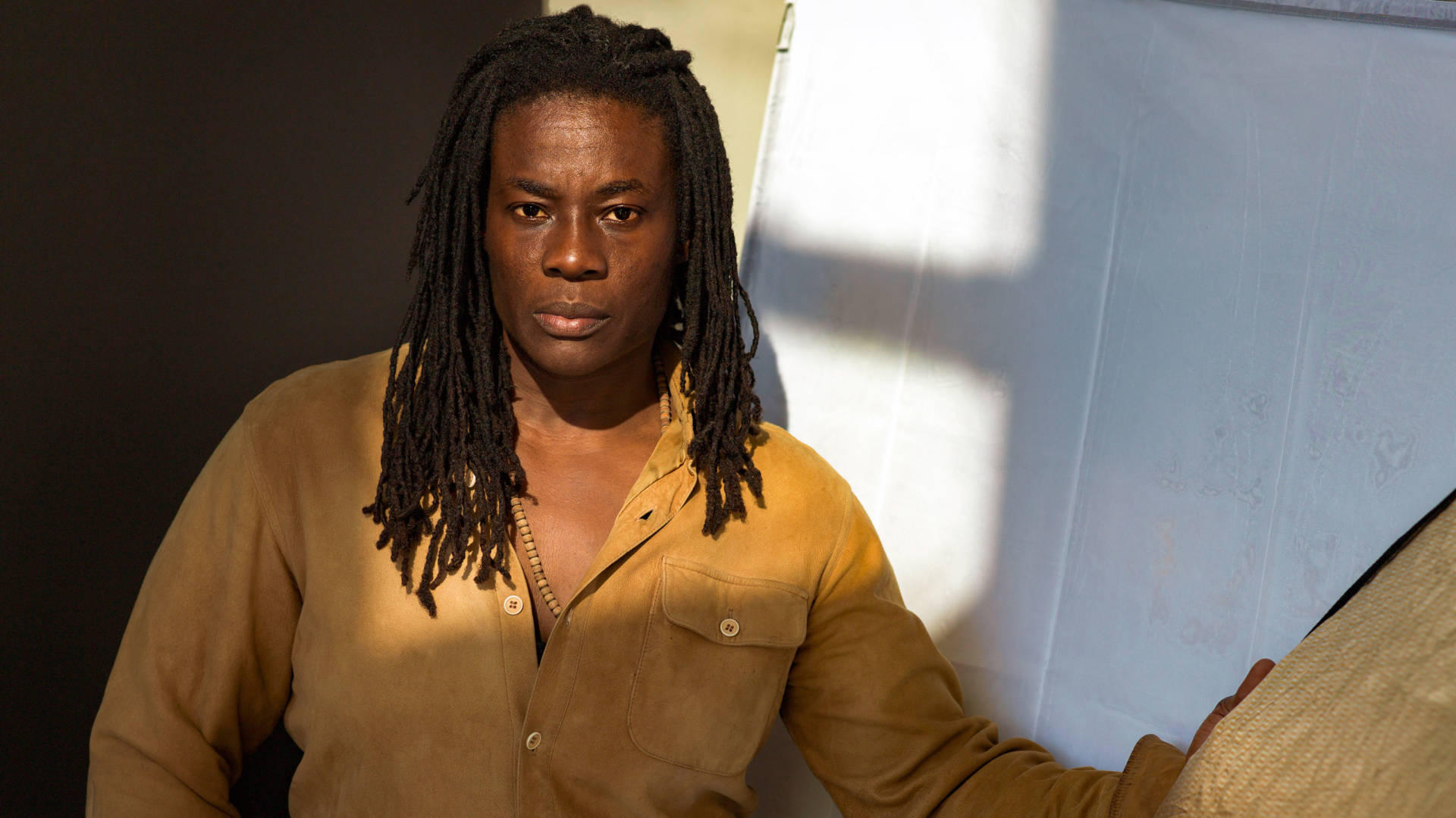As a Black queer woman, I find resonance in Cooper's story of fighting for your very existence in all aspects of life. I understand what it’s like to deal with prejudice, even when it’s internalized. It can feel like an endless rainstorm, relentlessly surrounding you wherever you go. But being cisgender (my current gender identity matches the sex I was assigned at birth) allows me some reprieve; there’s an umbrella I'm allowed to open in that rainstorm, and from time to time, a nice warm house I’m welcomed in. Each identity we hold can come with additional pressures, judgements, and rainstorms, and that can be a lot to deal with.
Cooper also faced prejudice while serving in the military during the time of Don't Ask Don't Tell, an experience that nonetheless offered an escape out of New York and taught him about integrity and honor. During his service, his identity really began taking shape; Skyler, then identifying as a woman, started to explore feelings for other women.

After his time in the military, Skyler pursued his passion in the liberal world of theater, but not without brushing up against some rigidity. "When I came to the arts, I knew that I could play male and female roles," he says. "I have always been clear about my masculine expression being a strong part of me. I recall in my earlier days in the theater how the stage manager would say things like ‘ladies stage left, and men stage right’ and I would respond, 'Where should I go?'"
Looking back on those early years of being a performer, Cooper’s gender expression allowed him to play various roles, although bias would still block progress.
"I went with this understanding that I was masculine," he says, "and I would lend my masculine physical and emotional traits to both roles. It was good for a while, and I got the roles that I needed to show what I could do, yet the roles I needed to really excel at my craft were not written yet."
So he wrote them himself.
“I realized, as my own identity began to evolve, that I would have to create my opportunities," he says. "I figured out how to do that with my first short film, Hero Mars. It was what I learned on my journey to become an artist. My heart was truly broken, so much that I was ready to give up on myself, but what I did was create an award-winning film. One that inspired me to see my ability as a storyteller/filmmaker today.”
As much as Cooper forged a solo path, he attributes much of his success to the Bay Area.
"The Bay Area provided me with the opportunity 'to be.' I bring the quality of 'what is to be male?' and 'what is to be female?' By just being."
Learn more about the genesis of Mapping Privilege, where it's taken Luna so far, and whether she's had any Oprah "a-ha!" moments:
Luna Malbroux talks about what inspired her new project, where it’s taken her, and whether she’s had any Oprah A-ha! Moments.
[embedly_js]
And if you want more Luna, listen to her speak on everything from racism in the Bay Area to why playing Bone Thugs-N-Harmony will not get you to second base on The Cooler:




